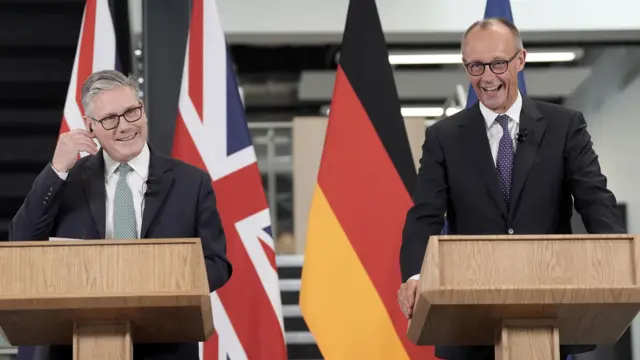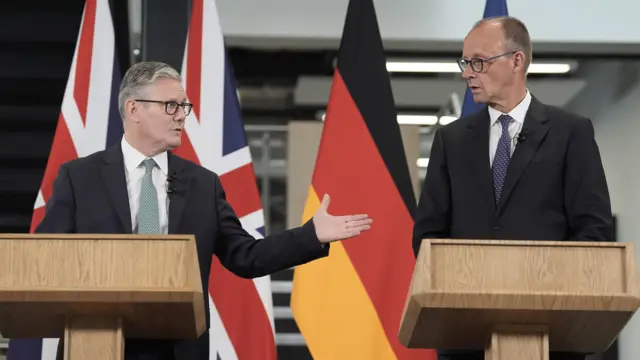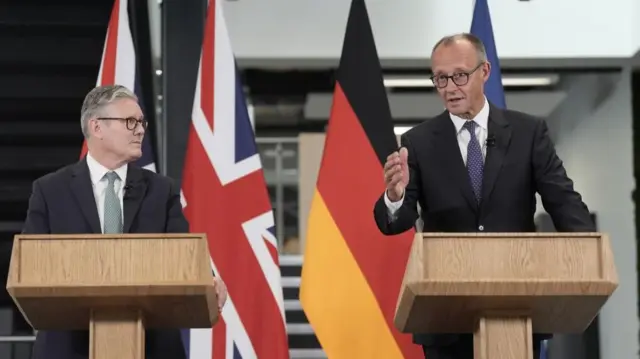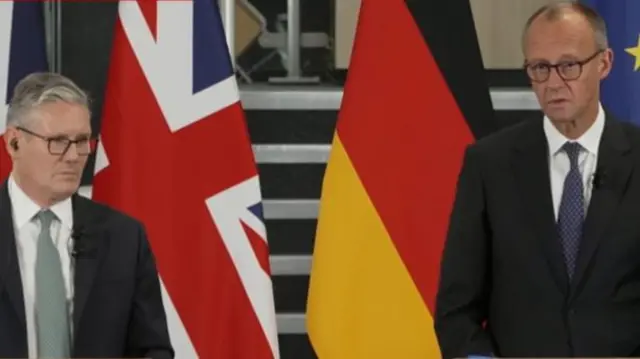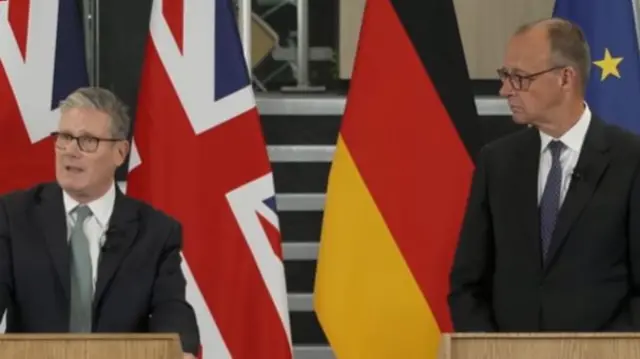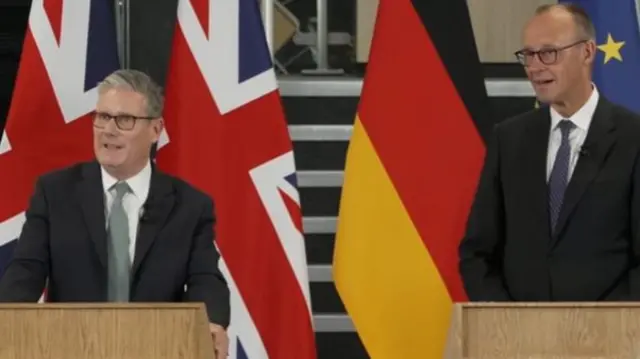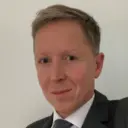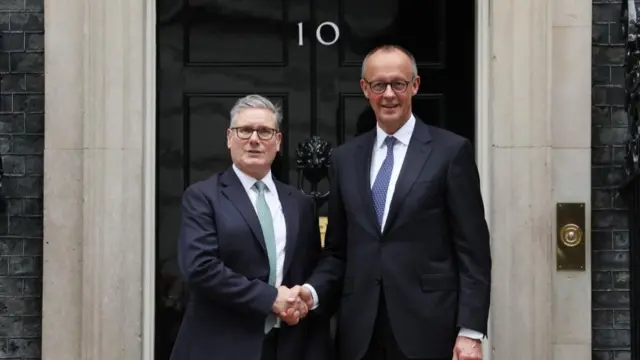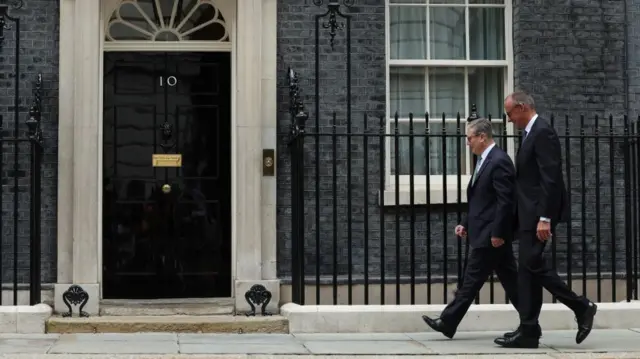Germany and the UK sign first treaty since World War Twopublished at 16:57 BST 17 July
Ruth Comerford
Live reporter
The day started with the German Chancellor Friedrich Merz's descent into the UK's Stansted airport, and culminated with both nations signing their first treaty since World War Two.
Parts of the treaty highlight the need for greater co-operation between the two countries, against a backdrop of the US's changing tune to Nato and Russia's continuing war in Ukraine.
The UK and Germany "mean business" on tackling illegal migration, Starmer said, as he welcomed Merz's commitments to tackling people-smuggling gangs and stopping small boats.
A host of other pledges - including co-operation on security and defence, bilateral trade and scientific research - were also promised in the treaty.
By next month, some UK passport holders will also soon be able to use German e-gates, and there are pledges on school trips and train links due to come into force in the next decade.
Signed in London's Victoria & Albert Museum - chosen to highlight the historic relationship between the UK and Germany - the Kensington Treaty is proof Germany and the UK are "really on the way to a new chapter," Merz said.
We're ending our live coverage, but in the meantime you can read all the latest in our main news story.


